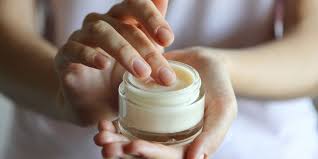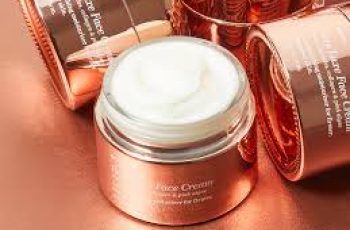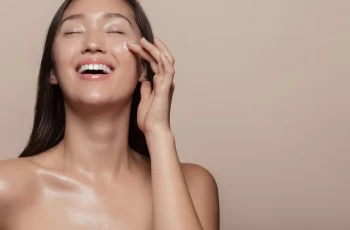9 Ways To Hydrate The Skin
Winter really does take it out of your skin. Battling your way through freezing winds strips the skin of any moisture, while staying indoors unfortunately isn’t the answer due to central heating further adding to the problem by taking moisture out of the air and from your skin too. Dry skin is not only uncomfortable, it can also start cracking and bleeding, making the colder months even harder to tackle.
Keeping the moisture levels in your skin is a bit of a challenge, but not impossible during these chilly days, additional moisture being the desired idea, this is where we share with you 9 ways of hydrating your skin this winter and keeping chapped, sore skin at bay!
1) Drink
Keeping yourself hydrated through winter is something everyone doesn’t pay any attention to. With the temperatures dropping meaning we reach more for hot drinks, such as tea or hot chocolates. If the idea of drinking cold water sends shivers down your already chilly spine, try instead warm water and lemon. Surprisingly refreshing and deeply hydrating, you can even try adding a teaspoon of honey for a helping hand at keeping those sniffles and coughs away!
2) Exfoliate
Exfoliation is admittedly associated more to the warmer months with the bid of buffing away leftover fake tan or remaining debris left over from sunscreen. During the winter we seem to miss out exfoliation during a time we need it most of all, with a build-up of dead skin cells making it difficult for moisturiser to penetrate through to the skin. Using a body wash with added exfoliates is a quick and easy way of helping the skin and can be used every day.
3) Luke warm water
You dash your way home through the icy downpour dreaming about sinking into a hot bubble bath. Yes, it feels likes absolute heaven, but isn’t the best decision for your skin. With the temperature of your bathing causing your skin to be stripped from it’s oils, therefore resulting in your skin becoming very dry and tight. Try instead to use Luke warm water in your showers and even when washing your hands to keep your skin comfortable.
4) Choosing your products
Keeping the skin moisturised daily is a great way of hydrating the skin and stopping it from drying out. However, choosing your products wisely will also benefit you in the long run as some moisturisers include a number of ingredients that over time dry out the skin. The best formula to choose is full of natural and nourishing ingredients. Oil based products instead of water are another aspect to consider due to the oil hydrating the skin more effectively then say, a water based moisturiser. You may also want to consider a hydrating sheet mask packed full of serum.
5) Moisturise daily and often
Your skin needs moisture right away after you have showered before your skin starts to dry out. One easy way of ensuring your skin stays hydrated is by applying moisturiser whilst skin is still damp, doing this will seal in that dampness.
6) Protect
We protect our skin from the cold by wearing gloves, hats and scarfs, but we always forget a sunscreen. Even though the sun doesn’t seem to be around much during the winter, it is still there and as strong as ever. Even on an overcast day it is best to apply a sunscreen or use a moisturiser with added SPF protection. This will not only help protect us against potential sun damage, but also the skin becoming dry and maybe cracking.
7) Overnight moisturising
It isn’t just your face that need extra help with moisturising throughout the colder months. Areas such as your hands, feet, elbows and knees become dry quicker due to the fact the skin is thinner in these areas. Slathering a thick moisturiser onto them will help enormously and for extra help try wearing cotton gloves and socks to wear whilst you sleep and you’ll wake up with perfectly hydrated skin!
8) Hydrate from the inside
Hydrating the skin from the inside is easier than you would imagine, eating food that is high in water, such as cucumber, watermelon etc will help with hydrating the skin from the inside out. Other food such as oily fish and avocado which naturally have high fatty acid content will also benefit your skin and add to the moisture and appearance of your skin, giving you a healthy glow.
9) DIY
This last idea is the most time consuming, mainly because of having to follow a recipe and making homemade face masks, but definitely worth it. Combining together ingredients high in natural moisturising properties, such as honey, yogurt, avocado, bananas and aloe and apply the mixture onto your skin for 10-30 minutes will give your skin a shot of hydration and leave it feeling very comfortable and moisturised ready to tackle the daily frost!
It is important to keep your skin happy and hydrated this winter and by following these nine tips you will have enough options to choose from to maintain a healthy, balanced skin. Before you know it, it’ll be spring!
DQH Can I use salicylic acid first and then vitamin C?
It’s easy to create a skincare routine, but knowing how to use it is another thing entirely. In most cases, if you’re not getting the desired skin results, it could be due to the layering of conflicting ingredients. So, is it possible that salicylic acid and vitamin C are such ingredients? Or are these active ingredients the duo that’s been missing from your skincare routine? If you want answers, stick around because today we are going to explain the benefits of salicylic acid and vitamin C and how they can be used in your daily life.
What are the benefits of salicylic acid for skin?
Salicylic acid is one of the most commonly used beta hydroxy acids and is favored by many people with oily, acne-prone skin. This acid is derived from willow bark, and unlike its water-soluble relatives (called alpha-hydroxy acids), salicylic acid is oil-soluble, which means it can penetrate deeper into the lower layers of the skin. Once it reaches the lower layers, it can help unclog pores of excess sebum, dirt, bacteria, debris, and impurities. This results in clearer skin tones and greater definition.
Not only does salicylic acid benefit the underlying layers, but the outer surface of the skin benefits as well. When applied to the skin, salicylic acid removes the buildup of dead skin cells. This is accomplished by breaking the bonds that hold dead cells to the surface. Over time, this can cause the complexion to look dull and prone to acne, blackheads, and other blemishes.
If you’d like to learn more about salicylic acid and how it can improve your skin, check out this dedicated blog post from a beauty insider.
What are the benefits of vitamin C for skin?
Vitamin C is considered one of the most powerful antioxidants, which means it is very effective at fighting free radicals and preventing them from causing further skin damage. Examples of free radicals include pollution, central heating, UV rays and harsh climate. They attack proteins, fats and cell membranes as soon as they come into contact with the skin, causing signs of premature aging such as fine lines and wrinkles as well as hyperpigmentation, flaky patches of skin and loss of elasticity.
Many people usually prefer to use vitamin C in their morning routine as this ingredient gives the complexion a radiant glow. You’ll also find that vitamin C can target areas of hyperpigmentation, plumping the skin and reducing the appearance of fine lines and wrinkles.
The thing about vitamin C is that there are a lot of outdated studies going back to the 1950s that describe vitamin C as an unstable skin component. Thanks to improvements in modern technology, this is no longer the case as all products now contain a stable form of vitamin C.
Visit The Beauty Insider to learn more about vitamin C. So please check out our blog post.
Can I use salicylic acid first and then vitamin C?
Yes, you absolutely can. In fact, it’s thought that using salicylic acid before using vitamin C ensures it penetrates faster and works faster.
This is an efficient way to utilize two power sources, and the reason has to do with pH. For example, the skin’s natural pH is about 4.7, making it slightly acidic. Salicylic acid and vitamin C are also both acidic, and you’ll find that vitamin C is absorbed quickly into the skin. Therefore, using salicylic acid beforehand can increase the acidity of the skin and allow vitamin C to penetrate into the skin faster.
While this is considered an effective way to combine two powerful ingredients, you need to be aware of your skin type and how it reacts to certain active ingredients. Even people with perfect, normal skin can experience skin sensitivity and irritation. Therefore, always consult a doctor or dermatologist before using any new products on your skin.
It’s also important to follow skin application rules. In this case, you need to use the product correctly to ensure you get the best results for your skin. If you’re not sure what I mean, the basic rule for skin is to start with the thinnest consistency and work your way up to the thickest consistency. This prevents a barrier from forming on the surface, preventing other active ingredients from penetrating the skin.
Can I use salicylic acid at night and vitamin C in the morning?
Yes, absolutely, this is considered the most effective way to get returns without any adverse side effects. This is because there is enough time between applications to ensure that the skin’s pH levels return to balance.
You’ll also find that Vitamin C is rich in antioxidants and is perfect for use in the morning to ensure your skin is protected and looking its healthiest. Due to the small size of salicylic acid molecules, it is an acid that is able to reach the deepest parts of the skin. While this is effective at keeping skin clear, it also increases the risk of irritation and photosensitivity. Therefore, many people prefer to use powerful BHAs in their evening routine without exposure to UV rays, pollution, or harsh weather.
Warning: If you avoid using sunscreen every day, none of these ingredients will do what your skin needs. The combination of chemical peels and powerful ingredients increases the risk of further damage to the skin’s surface. Use SPF 50 every day to keep your skin protected and your lipid barrier healthy, even on cloudy days, keeping your skin in top condition.



